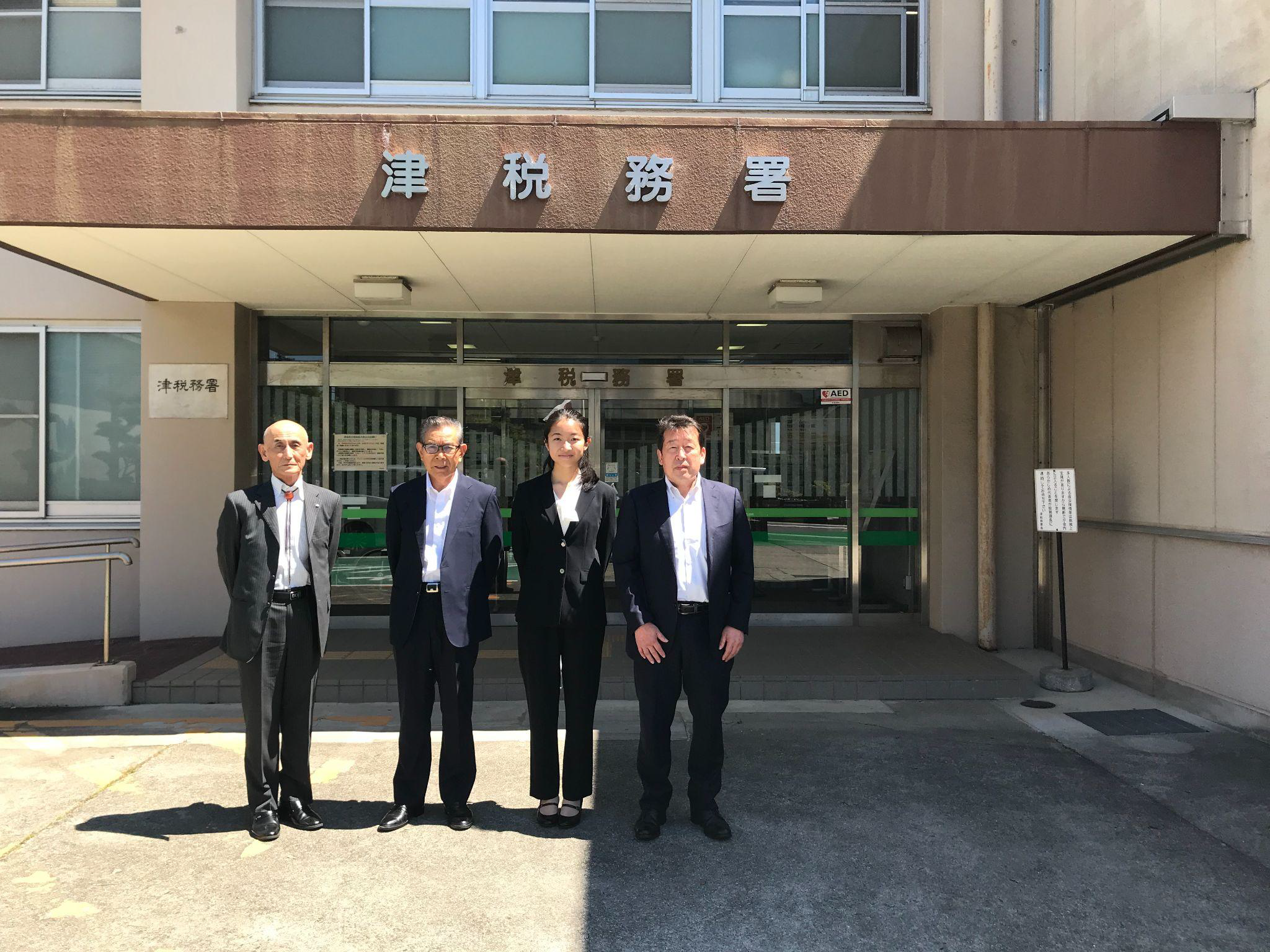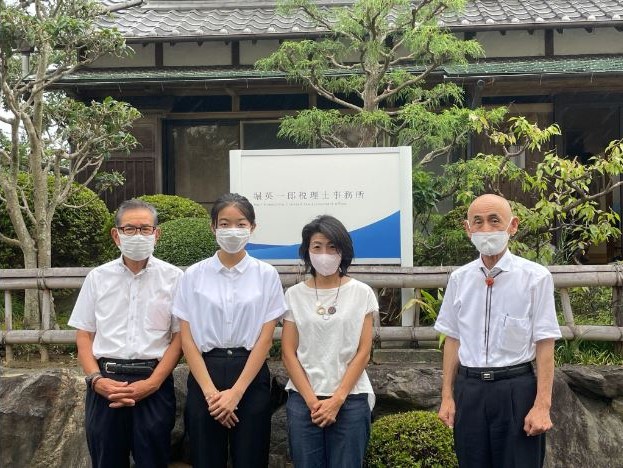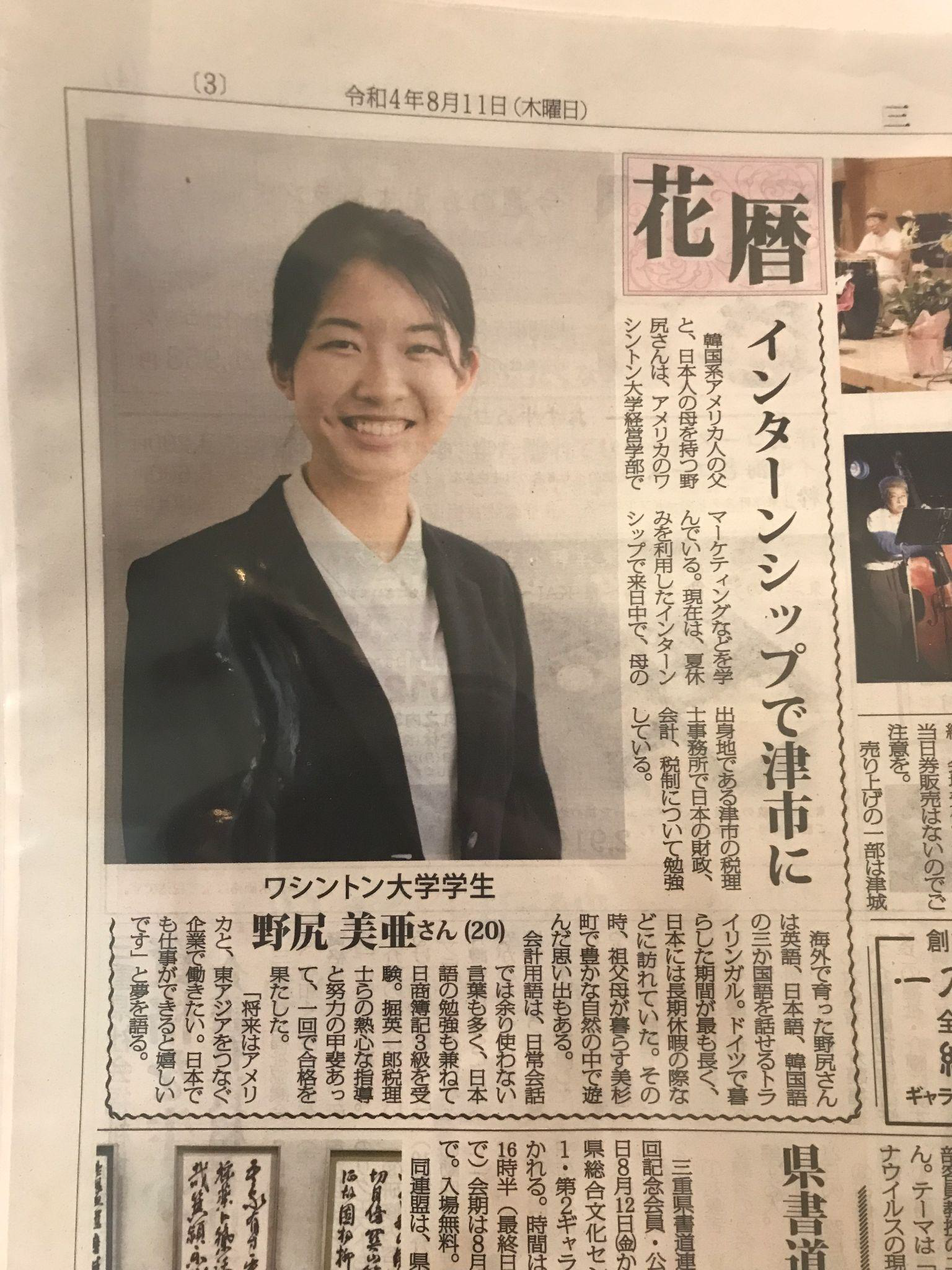Learning Japanese tax laws — and much more

(In front of the Tsu Tax Office; from left: Makara Koushi sensei, Hori Hideichiro sensei, Mia Chon, Chief Ogura Yasuhiko)
Six months ago, I did not know much about taxes besides what I vaguely remembered studying in ACCTG 215. As a marketing major, it was not my focus. As a CISB student however, I had the wonderful opportunity to spend 12 weeks of this past summer in the Mie Prefecture of Japan interning at Hori Hideichiro Licensed Tax Accountant Office where I learned all about the ins and outs of Japanese bookkeeping and tax laws.
Many know Japan through movies set in Tokyo or the latest anime hits, but my internship experience was far from what you see on the screen. The Mie Prefecture, a two hour drive east of Osaka and Kyoto, is an overlooked gem when it comes to touring Japan. Its capital, Tsu, is not as metropolitan as Tokyo but it is a place where you can see countryside meet the city; in between skinny backroads and train stations, rice paddies and department stores are small businesses and conglomerate branches that serve both dialect-speaking locals and foreign consumers. These companies must file tax returns every year and local tax accountant offices, such as Hori Hideichiro Licensed Tax Accountant Office, help them do just that. Hori Hideichiro Licensed Tax Accountant is headed by Hori Hideichiro sensei, a long-time professional in Japanese tax law. He climbed up the ladders of the National Tax Agency to HR manager of the entire Nagoya Regional Taxation Bureau and after retirement, he started his own tax accountant practice with major clients such as Toyota.

(In front of Hori Hideichiro Licensed Tax Accountant Office; from left: Hori Hideichiro sensei, Mia Chon, Yakushiji-san, Makara Koushi sensei)
Under the mentorship of Hori sensei and Makara Koushi sensei, another licensed tax accountant with his own tax accountant practice, I first studied Japanese bookkeeping and passed a national bookkeeping certification exam, then learned how to create corporate, income, and consumption tax returns.
A day as an intern in Japan starts with the commute – a large majority of Japanese employees commute to work via train and I was no different. After reaching the office, I would greet my senseis and the other office workers who would clarify details and give insight as to how things differ in practice as I watched video lectures of Japanese bookkeeping or received one-on-one coaching on tax law throughout the day. These lectures and all my conversations during the internship were of course all in Japanese, which tested my knowledge of honorific language as well as the filial and group-centered culture. Despite my inexperience in a professional Japanese business setting, everyone in the office was understanding and I learned so much from them beyond just taxes; we would eat lunch together and talk about everything from Japanese fruits to life in America to career advice before getting back to work.
Once I had the basics of a certain tax law down, I was able to use the accounting software and actually input the numbers to create a tax return. This was my favorite part of the internship because personally punching in the numbers and actually seeing where they go brought the scope beyond the details I learned in my texts and helped me see the big picture of tax law and the duties of a tax accountant.
Beyond work, my senseis took me to visit the Tsu Tax Office and I got the honor of having the Office Chief himself guide me on a tour around the building. I also got to appear in the local newspaper in an article about my time in Tsu as a student from America who came to learn about Japanese taxes. I know I will treasure these invaluable experiences forever and they will become one of my strengths as someone pursuing a career in international business. Looking back, I was able to deepen my understanding of Japanese business culture and heighten my cost-consciousness as a business student – something you can’t get in the classroom!

(Article in the August 11th edition of Furusato Shinbun)
